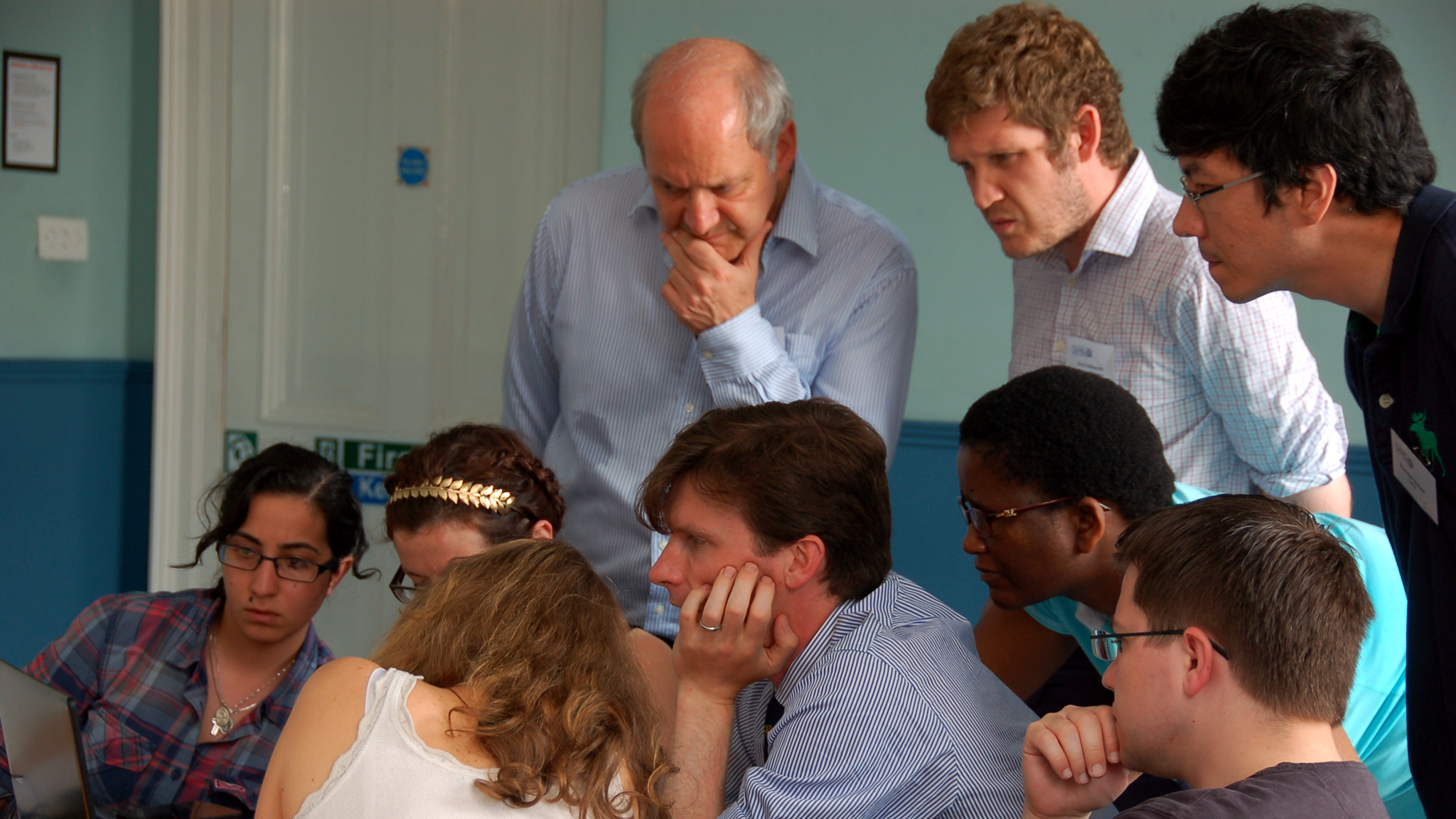The University is at the forefront of creating collaborations between mathematics research and industry.
Bath mathematicians have developed partnerships with industry partners through innovative workshops, addressing issues from nuclear reactor safety to mobile network efficiency.
Researchers from the Department of Mathematical Sciences work with the UK's national weather service, the Met Office, to help them better predict the weather, and with the World Health Organisation (WHO) to improve air pollution standards across the world.
They are now helping to test this workshop model at the University of São Paulo, hoping to generate similar partnerships in Brazil.
Developing relationships with industry partners
In 2014, the Engineering and Physical Sciences Research Council (EPSRC) established the Centre for Doctoral Training in Statistical Applied Mathematics at Bath (SAMBa). Over eight years, SAMBa will train more than 50 PhD students to become leading problem solvers and be able to work flexibly across traditional academic boundaries.
As part of the SAMBa training programme, regular workshops are run with industry. These 'Integrative Think Tanks' are intensive, week-long events which bring together students, academics and external partners to reformulate industry challenges into mathematical ones.
The Think Tanks help develop and expand relationships with industry partners and lead to collaborative research projects. At the same time, they train students to understand the requirements of industry and the challenges they may face in an economy-driven environment. The goal is to determine the fundamental mathematical research needed to go on and solve these problems.
Shaping Brazilian industry workshops
In Brazil, links between academic mathematics and industry are beginning to be established.
The recently established Centre for Mathematical Sciences Applied to Industry (CeMEAI) is focussed on developing collaborative mathematical research with industry.
Funded by the state of São Paulo Government funding agency (FAPESP), CeMEAI is based on the São Carlos campus of the University of São Paulo, where researchers have been working with SAMBa to develop new ways to collaborate with industry.
Academics from the University of São Paulo have participated in many of SAMBa’s Integrative Think Tanks. Professor Gustavo Buscaglia from CeMEAI said, 'I attended the 4th SAMBa Integrative Think Tank and found it to be a very enjoyable and rewarding experience. The collaborative working atmosphere was highly stimulating and I am looking forward to being involved in a similar event at the University of the South Pacific.'
CeMEAI ran their first industry-focussed workshop with partners from the manufacturing sector in September 2015, taking on board many aspects of the SAMBa workshops.
SAMBa Co-director, Paul Milewski, attended the workshop with Jonathan Evans from the Department of Mathematical Sciences.
The delegation tackled problems from modelling the manufacture of composite materials to optimising the harvest and distribution of sugar cane to ethanol producers. The second workshop from CeMEAI took place in July 2016 and a full SAMBa-CeMEAI Integrative Think Tank is planned for the near future.
The flourishing collaboration between CeMEAI and SAMBa has already led to funding from the Newton Fund and the São Paulo Research Foundation, helping Jonathan Evans work further with colleagues from CeMEAI. As part of this collaboration, Jonathan gave a short course at CeMEAI's July workshop.
In future, CeMEAI and SAMBa will investigate the dynamics of complex fluids. They expect more joint research proposals to follow.
